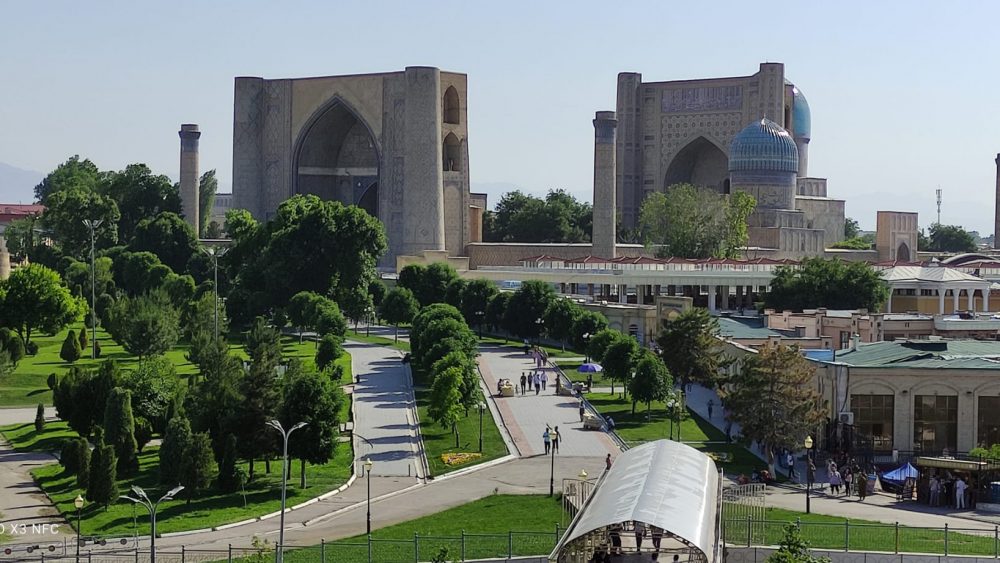by Erhan Doğan (Professor at the Faculty of Political Science of Marmara University, Turkey).
Within the framework of the Central Asian Law Project that Marmara University has been a partner, I decided to go and make a solo research which fits into the project’s research objectives. The idea was simple, due to the language related barriers I decide to conduct interviews with Turkish businessman who invested in Uzbekistan. I was planning to ask them questions about their business and how they overcome the gap between the laws (de juro situations) and de facto situations.
I have arrived in Uzbekistan on 15th April in about five hours and on a comfortable flight with Turkish Airlines. When I arrived at the Tashkent Airport, I was asked to sign a paper by officials at the entry which stated that I understood and accepted that I will be in a self-imposed quarantine for 14 days. The host university that I was seconded to – Westminster International University in Tashkent (WIUT), was kind enough to send a person to meet me at the airport. Before my arrival they informed me about every detail of my settlement in Tashkent
The person who met me at the airport brought me to the University’s guest house that they had arranged for my stay. In the morning our local coordinator Alisher called me and kindly asked me if I needed anything.
From the day arrived, I started contacting the people who I was supposed to interview. It seems that in Uzbekistan people did not take coronavirus as serious as we did in Turkey. People asked me to meet from the first day. I explained them I was under the quarantine rules. The university was quite serious on quarantine rules. They informed me that I should stay under quarantine till to the end of required 14th day. After that date I should have a coronavirus test which should show that I was coronavirus negative. Only after I could prove that I was Coronavirus negative, they allowed me to join them at the university.
While I was waiting these 14 days to pass, I made some walks in the less crowded streets of the city while avoiding close contact with people. I always had my mask on. Most of the people in the streets either did not put on their masks or if they had it, it was either covering their mouth or nose only or none (simply sticked to their jaw). I concluded from what I observed and what I read that Uzbekistan went through “herd immunity” way and before I arrived, they almost developed a sort of collective immunity. This was understandable from the low infection numbers. But later on, the other variants of the coronavirus hit Uzbekistan and I personally got sick too.
After the quarantine period was over. I took the test and it was negative. I went to the university. Our local Project leader Alisher introduced me to his colleagues. They were all welcoming and nice people. I started to learn what Uzbek hospitality was form the very first day at the university. Alisher also arranged a meeting with the University’s rector. I met the rector too and he was quite a welcoming person and supported the Project.
After I started to go to the campus, I started to do my interviews but then I had been informed by the University research unit that due to the nature of the topic and as it was including interviews, I needed to get an approval form the ethics committee of the university. I submitted an application to the ethics committee including a summary of my research and interview questions. Ethics committee investigated my case and provided me a letter that my research was in line with the ethical rules. With this letter in my bag, I felt more confident and started my interviews. During the interviews people were almost always without a mask. Even if I wore a mask, they were asking me to be relaxed and take my mask off. I was gently responding them that the mask was mainly for them, their answers were much more relaxed and they were insisting me to take my mask off.
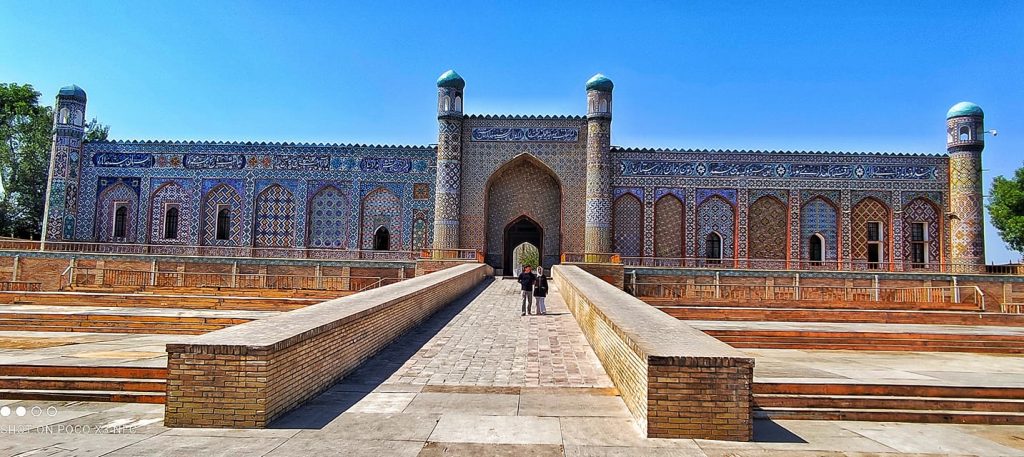

My stay In Uzbekistan coincided with time of holiday season after the fasting month of Ramadan. I got used to the fasting month and the holiday in Turkey. During the holiday time (they call it “Fıtır Hayit”) I organized a visit to Samarkand and Bukhara. Two of the must-see cities of Uzbekistan. Visiting Samarkand and Bukhara is highly recommended. These visits showed me the wealth of Uzbekistan, how rich the history of the country was and the important role that this country has in the human civilization. Amir Timur, Avicenna, Ulugbek, Bakhauddin Naqshbandi, Imam Bukhari, Imam Matirudi were all from this land and these people are quite important for the history of human kind and history of Muslim societies. I am deeply impressed with the country’s history.
After my holiday visits to these two historical cities, I returned back to Tashkent and kept doing my interviews. During the early periods of these interviews, I was strict on coronavirus related warnings of authorities but after some time I relaxed my strict standards and at one point I got the coronavirus myself. It was a bad experience. I had the travel health insurance as per the project rules, with that insurance in my bag I had visited one of the good hospitals. They examined me and asked me to take some tests. I did the tests and I was corona positive. First three days were difficult due to the pains at my joints and feeling of fire on the skin of my arms and body. For the first 7-8 days I was relatively fine. For this period Doctor just gave me some vitamins. But at the 8th day I felt a difference. There was a different feeling at my upper back. Next day I went to the doctor. Doctor listened my lungs and asked me to have a CT image of my lungs. There he saw that 20% of my lungs were affected by the coronavirus. Doctor decided to start “remdesivir” treatment. The remdesivir treatment was already a difficult procedure in itself. I went to hospital each day and they gave me the medicine under the doctor’s supervision. After the third treatment dose, as soon as they gave me the medicine, my body responded with a temperature change.
During that period, I was a bit scared. I was thinking what I read from the media. I was concerned about my coming days. Will I have a breathing problem? What happens if I needed to be put into reanimation room? These were the thoughts that were occupying my mind. At the end of the remdesivir treatment, I had some additional tests and showed their results to the doctor. Doctor told me that I was cured but I was still carrying the virus.
It was a disappointing moment. I needed to be under quarantine for another 14 days. The doctor recommended me to inhale sodium bi carbonate. He said that that would kill the virus in my breathing system and the next test would turn to negative after a while. I did follow the doctor’s recommendations and my test turned to negative five days later. That was one of the happiest moments that I had. I even wrote to our Project coordinator that I was the first veteran of the Project who had the coronavirus and recovered from it.
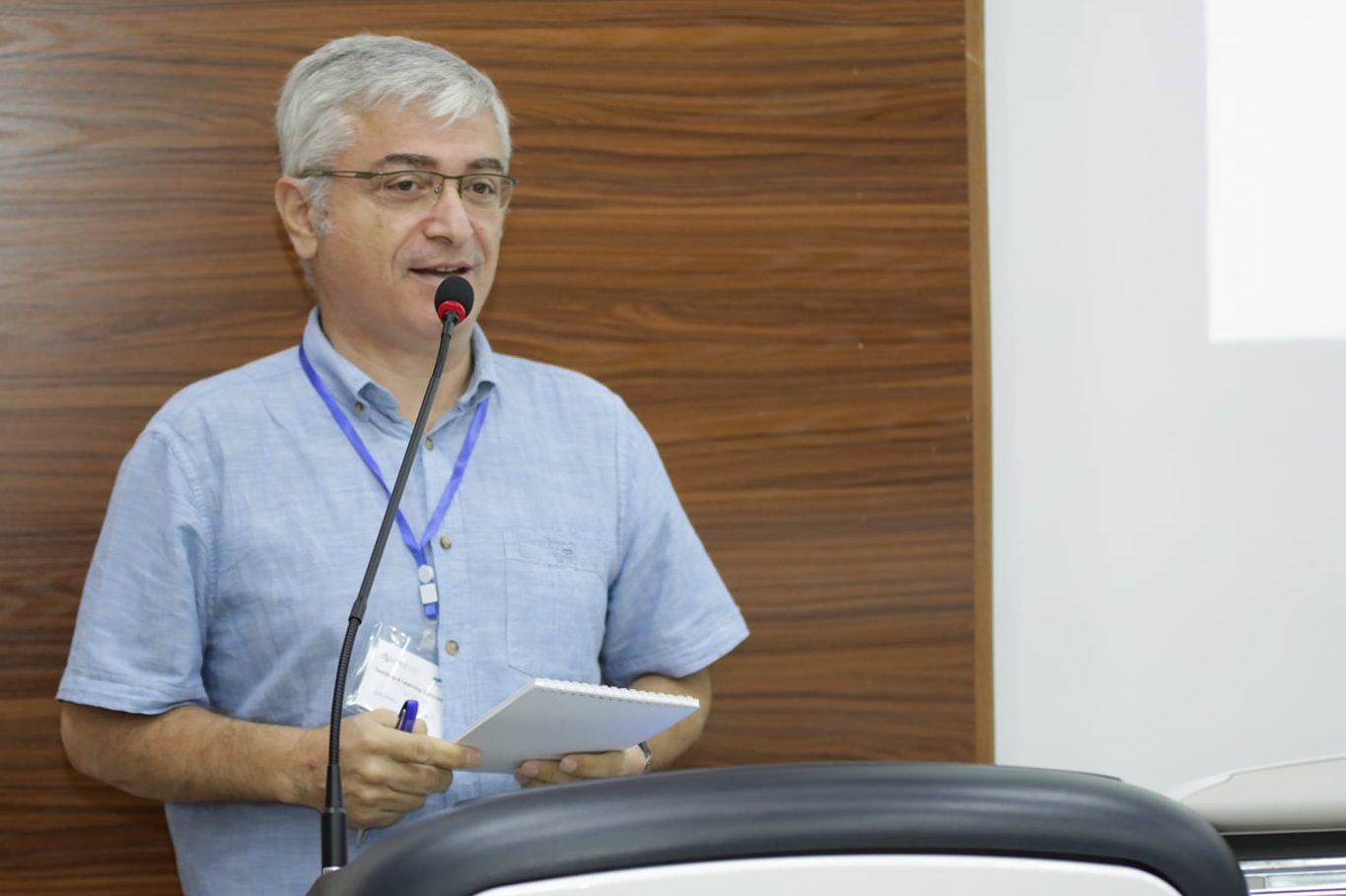
In a nutshell, I can say that I am happy that I did this secondment to Uzbekistan despite the coronavirus part. Westminster University in Tashkent was quite a good host to me. I am impressed with their high teaching standards. Meanwhile I also arranged signing of a memorandum of understanding (MOU) between my university (Marmara University in Istanbul) and Westminster University in Tashkent. I joined two conferences during my stay. One was about the sharing of teaching experiences during the corona time, organized by WIUT. It was an Internal workshop in which different WIUT members shared their own ideas and experiences to make teaching better during corona times I shared my personal experiences from Turkey as they asked me to contribute. My talk was welcomed by the audience. It was quite a good exercise for me. Later I joined an online conference organized by another Project partner from Uzbekistan, the Academy of the General Prosecutor’s Office of Uzbekistan. They asked me to make a speech about the methodology in social sciences. It was a too big topic. I made some preparation and delivered my speech on the methodology in social sciences. That talk was also a good exercise for me and it was welcomed by the audience as well.
Other than these two events, I tried to talk with every person that I engage including the hairdressers that I got service from, the shop that I made shopping, etc. Talking to people with the aim of learning from them on a special topic is one of the most important methods to enhance our knowledge about a society that we newly enter. I learned a lot. Every encounter and every talk created additional curiosity in me. There are much more to learn about this society.
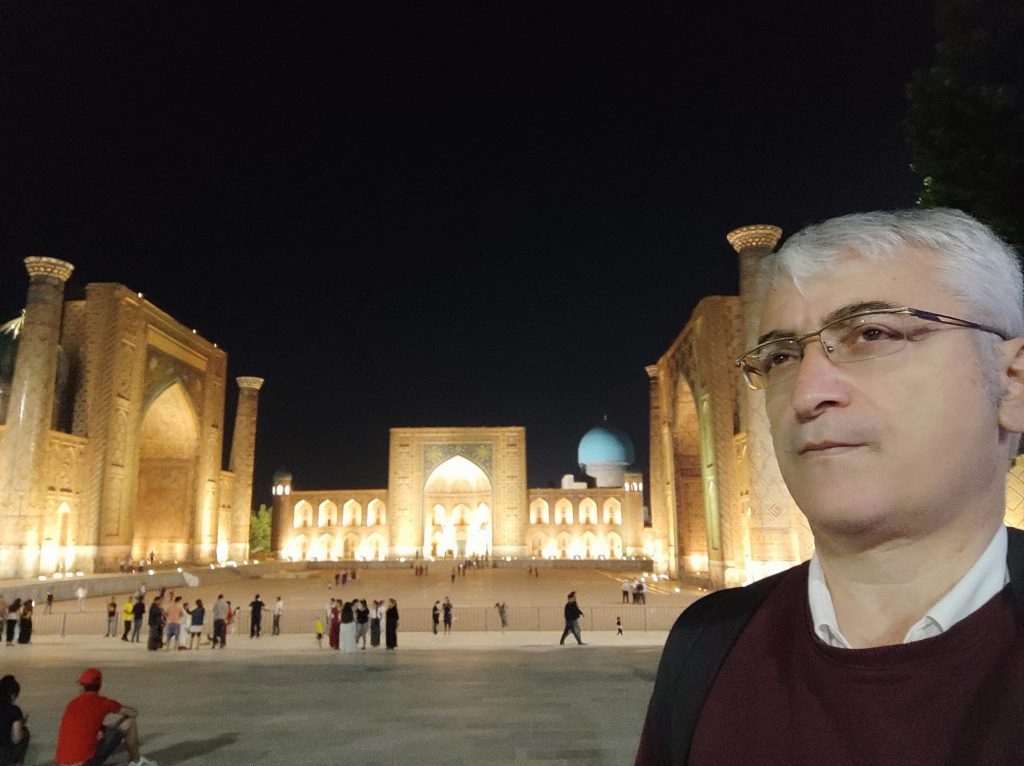
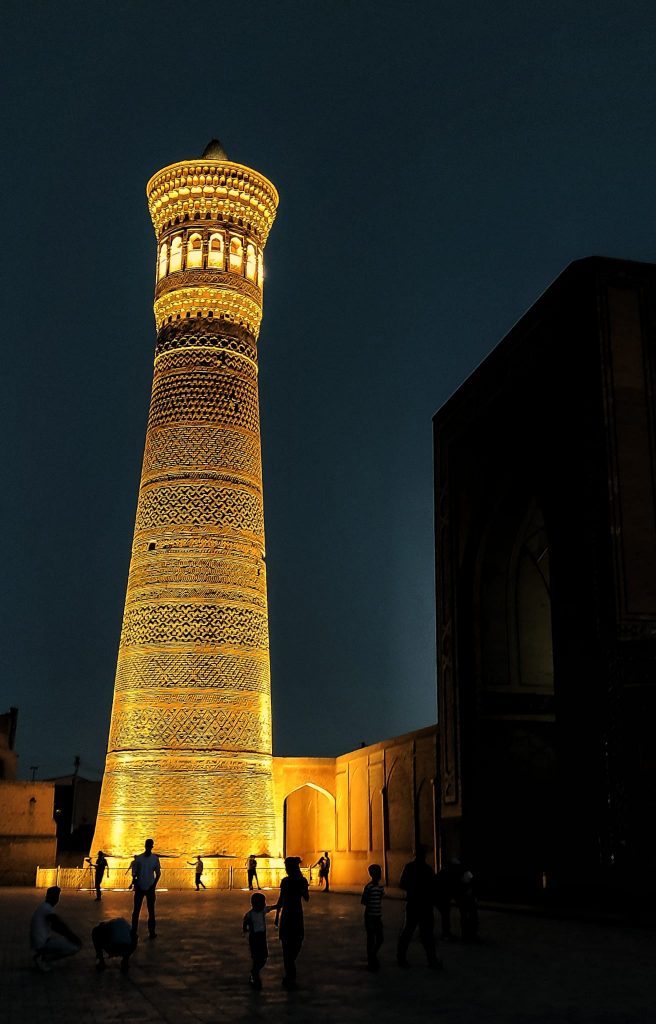
Uzbek people are quite lovely. They are quite welcoming. During my stay I tried to talk to them in Turkish and they answered me in Uzbek and at the end we understood each other. So, in my opinion there is some Turkish within Uzbek language. Uzbeks who recognized that I am from Turkey brought the Turkish within the language forward and that was how we communicated. Feelings and emotions are transmitted more with gestures. But I have to admit that during my communications in Turkish-Uzbek axis many details were lost. It requires me to bring the Uzbek within Turkish forward, too. I guess I started to understand the Uzbek language better now.
I tried to build up bridges between Marmara University and WIUT so that in the future we can keep cooperating and learning from each other. This was my main intention which is in line with Project objectives. I am excited and already started to work on articles that I plan to compile and publish soon. I have done several formal interviews and many small talks with people who make business. They also count as interviews as I learned a lot on these small talks with people who make business in Uzbekistan. I remember my conversation with a barber shop. He told me many anecdotes about his experiences in Uzbekistan and they were highly relevant for my research, too. As these small talks are more informal, informants feel themselves much more relaxed and talk freely.
As the bigger project team, we even got an acceptance to an online conference that will be conducted by the Central Eurasian Studies Society at the Ohio State University this October. Me and other Project members will make some presentations about our conducted research. I will return to Turkey and start from where I left at Marmara University by 15th September. I will miss my days in Tashkent.
While I was seconded in Tashkent, four WIUT researchers were seconded at Marmara University. With the help of our research assistants, I tried to organize their stay and make it as comfortable as possible. You will read their impressions from their own posts in these pages. What I heard from them so far is happily quite positive. This project structure is so well designed and it is helping us to establish some sustainable links for the future.

